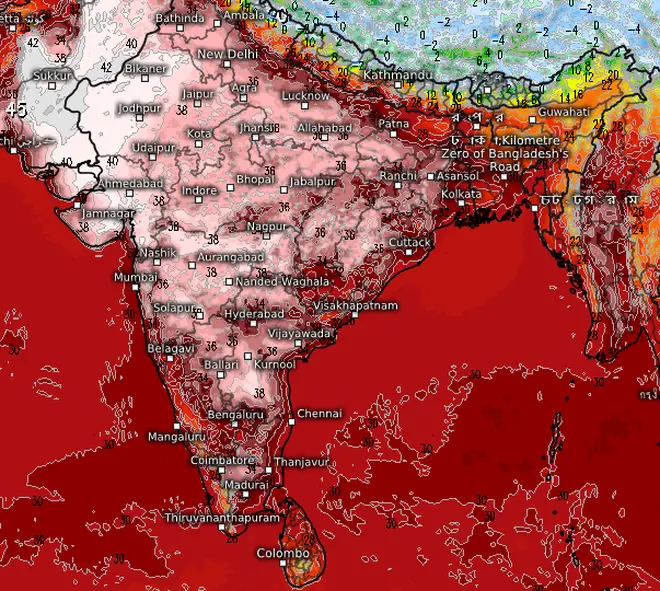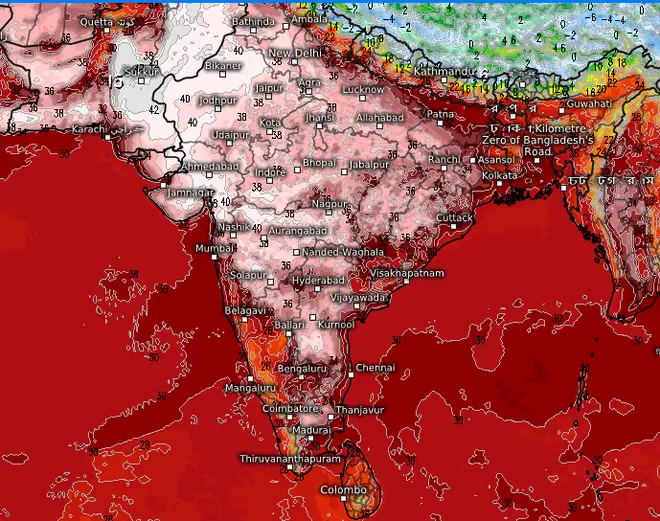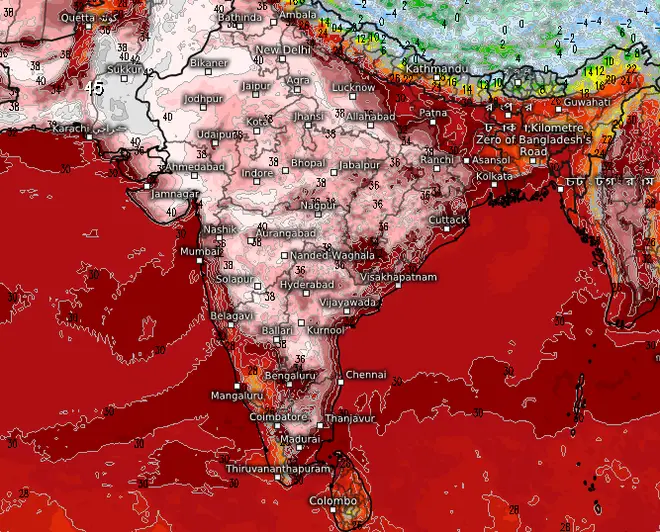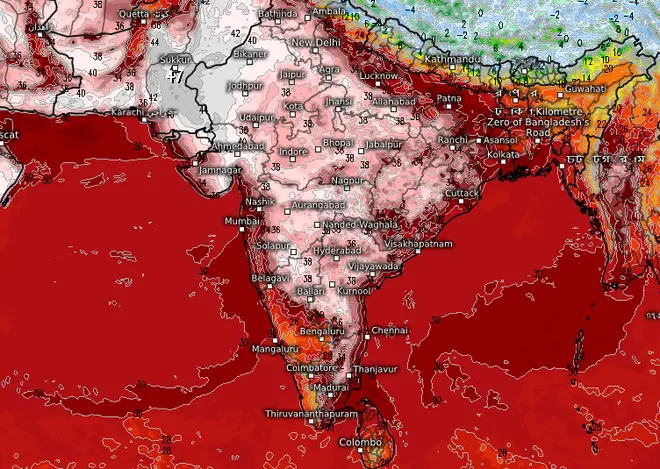A deadly heatwave is building across India and Pakistan, home to around one in five people on Earth, and new analysis by climate scientists has directly connected the heatwave with climate change.
Temperatures are forecast to rise to 50°C in Jacobabad, Pakistan, approaching the temperature record for the city, which is one of the hottest places on the planet. New Delhi could touch 44-45°C, approaching its record April temperature, while some parts of North India could touch 46°C. Heatwave warnings have been issued, with public health experts pointing out that extreme heat so early in the year is particularly dangerous.

Dr Mariam Zachariah and Dr Friederike Otto of Imperial College, London, have found that the heat that hit India earlier this month is already much more common as a result of higher global temperatures caused by human activities.
More frequent now
“Before human activities increased global temperatures, we would have seen this heating around once in 50 years. But now it is a much more common event and we can expect it once in every four years. And until net emissions are halted, it will continue to become even more common,” Zachariah was quoted as saying.
According to Otto, the current heatwave has been made hotter by climate change resulting from human activities. “This is now the case for every heatwave, everywhere in the world. Until net greenhouse gas emissions end, heatwaves in India and elsewhere will continue to become hotter and more dangerous.”

Maps show how the footprint of oppressive heat (in white and ash blue) may build over the Sindh province in Pakistan and spread East across the border to West Rajasthan and neighbourhood till the end of this month



The forecast temperatures are similar to those seen in the deadly heatwaves that hit India and Pakistan in May-June 2015, killing at least 4,500 people. In the June 2015 heatwave, New Delhi airport recorded 44.6°C, while the hottest temperature in India was seen in Jharsuguda, Odisha, at 49.4°C. In Pakistan, Karachi saw temperatures of 45°C, while other cities in the Balochistan and Sindh provinces reached 49°C.
Wheat yields drop
India has already suffered the hottest March in 122 years of weather data, and parts of the country are seeing wheat yields drop 10-15 per cent partly due to the unseasonal heat. Some experts in India are also stressing the need for actions to help people survive the climate change-driven extreme heat:
Dr Abhiyant Tiwari, Assistant Professor and Programme Manager, Gujarat Institute of Disaster Management, said that, while mitigation measures are a must to limit future warming, the extreme, frequent, and long-lasting spells of heatwaves are no more a future risk. It is already here and unavoidable.
Dr Dileep Mavalankar, Director, Indian Institute of Public Health, Gandhinagar, said the Indian Meteorological Department (IMD) is releasing forecast advisories for the next five days for 1,000 cities in India. Ahmedabad is on an orange alert on all the days, with temperatures of 43-44°C and a likely increase further.
Track advisories, keep indoors
“People need to watch out for these advisories, stay indoors, keep themselves hydrated and rush to the nearest health centre if they feel moderate signs of heat-related illness. There’s a special need to monitor the old and vulnerable, just like we did during Covid, as they can develop heat strokes even when sitting at home,” Mavalankar said.
“This is a very early heatwave and these normally have a higher rate of mortality since adaptation and preparedness is lower during these months of March and April. The Central, State and local-self governments should also focus on this, especially when IMD alerts are in orange and red, and they should put out warning advertisements in newspapers, TV and radio to warn the public. This is a warning signal for what is to come in May and June. If we take effective action now we can prevent a lot of morbidity and mortality.”





Comments
Comments have to be in English, and in full sentences. They cannot be abusive or personal. Please abide by our community guidelines for posting your comments.
We have migrated to a new commenting platform. If you are already a registered user of TheHindu Businessline and logged in, you may continue to engage with our articles. If you do not have an account please register and login to post comments. Users can access their older comments by logging into their accounts on Vuukle.